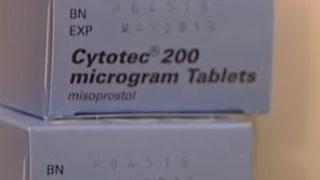Abortion Provider Challenges Government for Easier Abortions
- |

The British Pregnancy Advisory Service (BPAS), the UK’s largest abortion provider, has mounted a legal challenge to liberalise the law on abortion.
At present, women seeking an early medical abortion make two visits to a clinic, during which they take drugs that cause the termination of the pregnancy. BPAS is challenging the current interpretation of the law to allow the second drug to be administered at home, citing comfort and safety concerns for the woman.
The second drug, misoprostol, is taken a day or two after the first drug, completing the abortion of the unborn child. Typically, between 4 and 48 hours later, the baby is miscarried, following heavy bleeding and cramps.
The Society for the Protection of Unborn Children (SPUC), a pro-life group, is seeking to intervene in the case. SPUC’s general secretary, Paul Tully, commented:
“Abortion is an appalling ordeal for women, as well as the killing of an unborn child. In taking this legal action BPAS is trivialising abortion and jeopardising women’s welfare.”
SPUC’s Press Release continued:
“If BPAS challenge is successful, women taking misoprostol will go into labour at home. This can be very distressing as labour, usually associated with child-birth, now becomes associated with the delivery of a dead child.”
Josephine Quintavalle, Director of Comment on Reproductive Ethics (CORE), observed:
“It is well-known that the pro-abortion lobby in the UK wants to see abortion on demand in the first trimester of pregnancy and this attempt to entrust the second stage of medical abortion to the patient would move that agenda forward dramatically.”
A recent study published by BJOG indicated that women found the experience of surgical abortion preferable to medical abortion, during weeks 13-20 of pregnancy, from both the physical and the psychological perspective.
Josephine Quintavalle continued:
“The acknowledged shortage of doctors prepared to perform surgical abortions is one of the reasons why abortion providers are hyping up the medical alternatives, but more significantly this present initiative must be read as an attempt to chip away at the Abortion Act and trivialise the dramatic reality of abortion.”
Andrea Minichiello Williams, CEO of Christian Concern, said:
“I am concerned for the safety and well-being of women at home administering such a drug to themselves and inducing a miscarriage. Women need support during what can be a very traumatic time. This attempt to change the law is being pushed by a major abortion provider despite the opposition of the Department of Health.”
The case is due to be heard at the High Court on January 28th.
Sources
Resources
Further stories on abortion can be found here.
